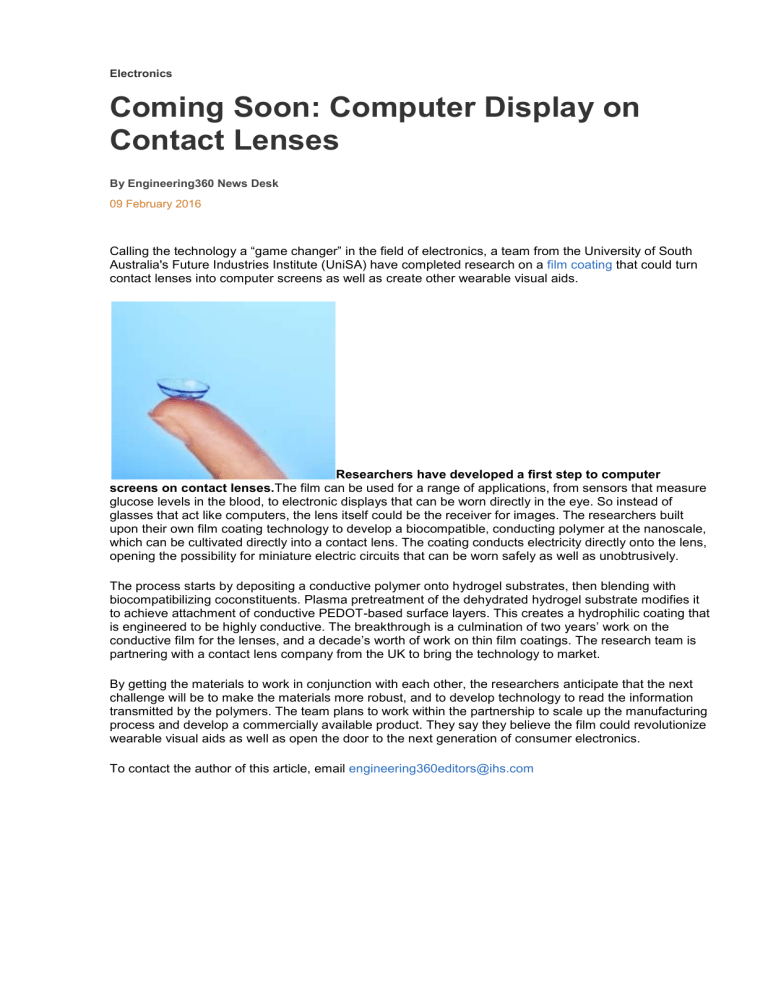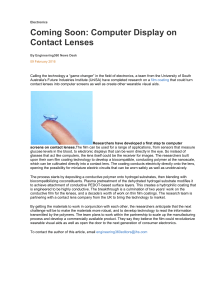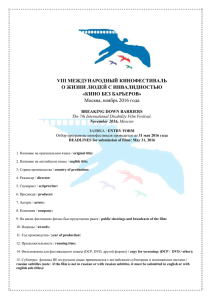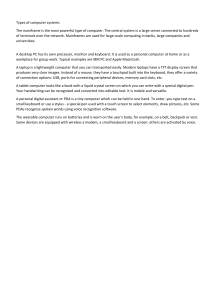
Electronics Coming Soon: Computer Display on Contact Lenses By Engineering360 News Desk 09 February 2016 Calling the technology a “game changer” in the field of electronics, a team from the University of South Australia's Future Industries Institute (UniSA) have completed research on a film coating that could turn contact lenses into computer screens as well as create other wearable visual aids. Researchers have developed a first step to computer screens on contact lenses.The film can be used for a range of applications, from sensors that measure glucose levels in the blood, to electronic displays that can be worn directly in the eye. So instead of glasses that act like computers, the lens itself could be the receiver for images. The researchers built upon their own film coating technology to develop a biocompatible, conducting polymer at the nanoscale, which can be cultivated directly into a contact lens. The coating conducts electricity directly onto the lens, opening the possibility for miniature electric circuits that can be worn safely as well as unobtrusively. The process starts by depositing a conductive polymer onto hydrogel substrates, then blending with biocompatibilizing coconstituents. Plasma pretreatment of the dehydrated hydrogel substrate modifies it to achieve attachment of conductive PEDOT-based surface layers. This creates a hydrophilic coating that is engineered to be highly conductive. The breakthrough is a culmination of two years’ work on the conductive film for the lenses, and a decade’s worth of work on thin film coatings. The research team is partnering with a contact lens company from the UK to bring the technology to market. By getting the materials to work in conjunction with each other, the researchers anticipate that the next challenge will be to make the materials more robust, and to develop technology to read the information transmitted by the polymers. The team plans to work within the partnership to scale up the manufacturing process and develop a commercially available product. They say they believe the film could revolutionize wearable visual aids as well as open the door to the next generation of consumer electronics. To contact the author of this article, email [email protected]











